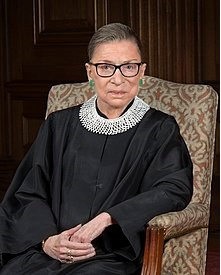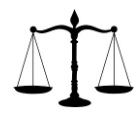Roe v. Wade: Legal Scholars Comment
These quotations, in chronological order, come entirely from legal experts who approve of abortion legalization.
The Wages of Crying Wolf: A Comment on Roe v. Wade
John Hart Ely, Yale Law Journal, 82, 920, 935-937 (1973)
Roe “is not constitutional law and gives almost no sense of an obligation to try to be.”
What is frightening about Roe is that this super-protected right is not inferable from the language of the Constitution, the framers’ thinking respecting the specific problem in issue, any general value derivable from the provisions they included, or the nation’s governmental structure. Nor is it explainable in terms of the unusual political impotence of the group judicially protected vis-à-vis the interest that legislatively prevailed over it . . . At times the inferences the Court has drawn from the values the Constitution marks for special protection have been controversial, even shaky, but never before has its sense of an obligation to draw one been so obviously lacking.
The Supreme Court, 1972 Term—Foreword: Toward a Model of Roles in the Due Process of Life and Law
 Laurence Tribe, Harvard Law Review, 87, 1, 7, (1973)
Laurence Tribe, Harvard Law Review, 87, 1, 7, (1973)
One of the most curious things about Roe is that, behind its own verbal smokescreen, the substantive judgment on which it rests is nowhere to be found.
Some Thoughts on Autonomy and Equality in Relation to Roe v. Wade
 Ruth Bader Ginsburg, Associate Justice of the U.S. Supreme Court
Ruth Bader Ginsburg, Associate Justice of the U.S. Supreme Court
North Carolina Law Review, 1985
Roe, I believe, would have been more acceptable as a judicial decision if it had not gone beyond a ruling on the extreme statute before the court . . . Heavy-handed judicial intervention was difficult to justify and appears to have provoked, not resolved, conflict.
The Lingering Problems with Roe v. Wade
Edward Lazarus, Former clerk to Harry Blackmun, Find Law Legal Commentary, Oct. 3, 2002
 As a matter of constitutional interpretation and judicial method, Roe borders on the indefensible. I say this as someone utterly committed to the right to choose, as someone who believes such a right has grounding elsewhere in the Constitution instead of where Roe placed it, and as someone who loved Roe’s author like a grandfather. . . .
As a matter of constitutional interpretation and judicial method, Roe borders on the indefensible. I say this as someone utterly committed to the right to choose, as someone who believes such a right has grounding elsewhere in the Constitution instead of where Roe placed it, and as someone who loved Roe’s author like a grandfather. . . .
[W]hen Democratic senators oppose a judicial appointment because of the nominee’s opposition to Roe, they not only endorse but make a litmus test out of one of the most intellectually suspect constitutional decisions of the modern era. They practically require that a judicial nominee sign on to logic that is, at best, questionable, and at worst, disingenuous and results-oriented. In doing so, they select not for faithful, but for unfaithful, constitutional interpreters to people the federal judiciary.
This is a strategy with baleful long-term consequences. The standard critique of liberal judges trumpets their willingness to substitute personal preference for legal analysis – and Roe is universally featured as Exhibit A. Conservative judges, in truth, perform the same kind of substitution just as often – but there is not yet as flagrant an Exhibit A for this contention as Roe provides.
As long as liberals embrace Roe, they will be forced to unilaterally shoulder an “activist” label that by rights, they should share with conservatives too. By not only embracing Roe, but pointing to it as the defining case of liberal constitutionalism, the Senate grandstanders only enhance the all too popular perception that liberal (but never conservative) judges routinely depart from the law, and give it far more credibility than it deserves.
The real debate in constitutional law today ought to be over the truly revolutionary nature of the conservatives’ agenda, and their willingness to do exactly what they accuse the liberals of having done in Roe: depart from constitutional sources to impose their own policy preferences. But until Democrats abandon Roe as the be all and end all of constitutional decision-making, they will continue to fight an uphill battle, having yielded the intellectual high ground to those who have no just claim to that terrain.
Shaky Basis for a Constitutional “Right”
Kermit Roosevelt, University of Pennsylvania Law School, Washington Post, January 22, 2003
 [I]t is time to admit in public that, as an example of the practice of constitutional opinion writing, Roe is a serious disappointment. You will be hard-pressed to find a constitutional law professor, even among those who support the idea of constitutional protection for the right to choose, who will embrace the opinion itself rather than the result.
[I]t is time to admit in public that, as an example of the practice of constitutional opinion writing, Roe is a serious disappointment. You will be hard-pressed to find a constitutional law professor, even among those who support the idea of constitutional protection for the right to choose, who will embrace the opinion itself rather than the result.
This is not surprising. As constitutional argument, Roe is barely coherent. The court pulled its fundamental right to choose more or less from the constitutional ether. . . .
No opinion with such deficiencies could be expected to provide a sound basis for resolution of a hotly contested social issue, and indeed, Roe has aged poorly. . . .
By declaring an inviolable fundamental right to abortion, Roe short-circuited the democratic deliberation that is the most reliable method of deciding questions of competing values.
Akhil Reed Amar, Wall Street Journal, May 14, 2022. (Reading requires subscription)
WSJ Intro: For a constitutional scholar and pro-choice Democrat, there are reasons to endorse the leaked draft opinion overturning the 1973 abortion decision—and to see it as vindication for a range of liberal priorities.
 In 1954, in Brown v. Board of Education, the justices rightly buried their predecessors’ 1896 ruling in Plessy v. Ferguson, which had proclaimed the dubious doctrine of “separate but equal.” . . . Likewise, the New Deal Court properly repudiated dozens of earlier Gilded Age cases that read property and contract rights far too broadly and in the process invalidated minimum-wage, maximum-hour, worker-safety and consumer-protection laws of various sorts—laws that are now seen, quite rightly, as perfectly proper.
In 1954, in Brown v. Board of Education, the justices rightly buried their predecessors’ 1896 ruling in Plessy v. Ferguson, which had proclaimed the dubious doctrine of “separate but equal.” . . . Likewise, the New Deal Court properly repudiated dozens of earlier Gilded Age cases that read property and contract rights far too broadly and in the process invalidated minimum-wage, maximum-hour, worker-safety and consumer-protection laws of various sorts—laws that are now seen, quite rightly, as perfectly proper.
The liberal Warren Court also overruled a staggering number of precedents, introducing now familiar terms to our constitutional lexicon. . . .
Today, the Supreme Court’s 1973 opinion in Roe v. Wade, written by Justice Harry Blackmun, is similarly ripe for reversal. In the eyes of many constitutional experts across the ideological spectrum, it too lacks solid grounding in the Constitution itself . . .
Does Justice Alito’s draft, as many are now claiming, inflict collateral damage on other areas of constitutional case law, such as the Warren Court’s precedents on contraception and interracial marriage?
It does not. In fact, the Dobbs draft reinforces these iconic opinions by explaining why they were right—namely, because the freedoms recognized in these cases were “deeply rooted in the Nation’s history and tradition.” . . .
Whereas the Court in Griswold [the case allowing married couples to have contraception] sided with 49 states against the outlier Connecticut, the Court in Roe invalidated the laws of at least 49—perhaps all 50—states. The Dobbs draft takes pains to cite this stunning fact . . .
In short, I am a Democrat who supports abortion rights but opposes Roe. The Court’s ruling in the case was simply not grounded either in what the Constitution says or in the long-standing, widely embraced mores and practices of the country.
=================================
For more of our posts on Roe v. Wade:
Reflections on the Alito Draft Leak of May 2, 2022
My Ideas for Post-Roe Legislation
Post-Roe Stats: the Natural Experiment
Our Experience with Overturning Terrible Court Decisions


Leave a Reply